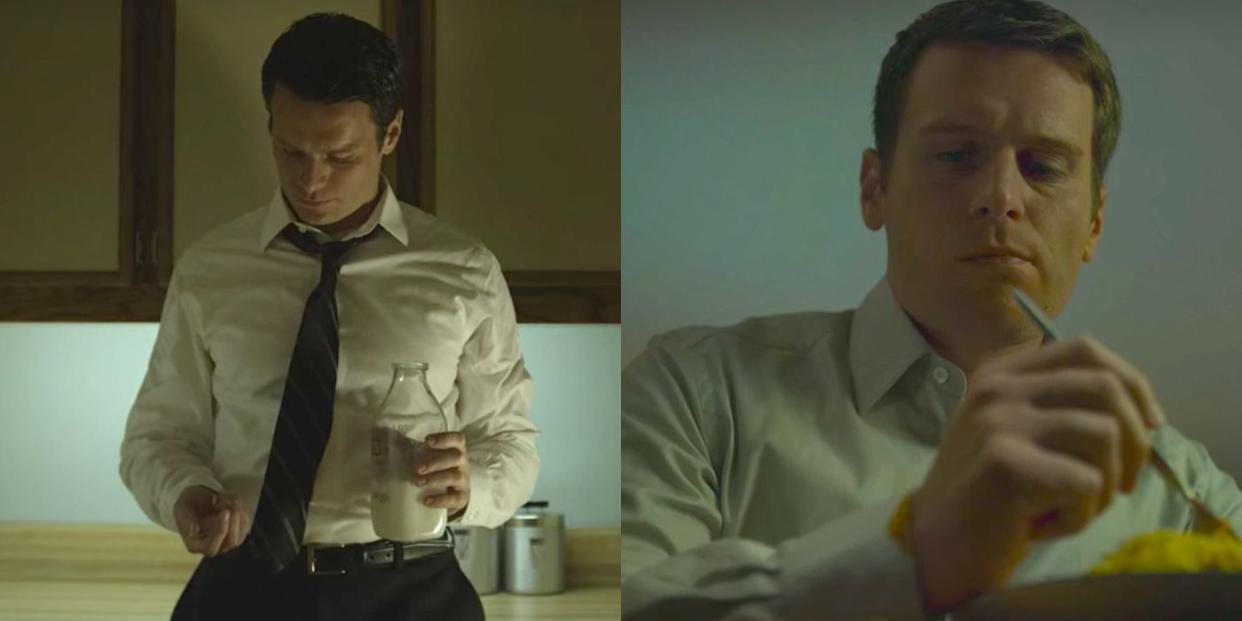'Mindhunter' Fans Have a Compelling Theory For What the Stain on Holden's Sleeve Means in the Season Two Finale

In the final scene of Mindhunter Season Two, Jonathan Groff's Holden Ford is sitting at home alone eating a plate of spaghetti when he notices a red stain on his sleeve. He walks to the sink, and begins to wash his shirt as the TV in the background plays a news report updating on the Atlanta Child Murders.
Reporters are being updated during a police press conference: "In every investigation where you reach a point that you've done all you can. So for now we are suspending all 29 investigations having arrested our prime suspect."
A reporter asks if Wayne Williams will be indicated in any of the murders besides two.
"At this time, no," an official responds.
And the season ends with text explaining that "As of 2019, none of the remaining 27 cases have been prosecuted."
In a discussion on the Mindhunter Reddit, fans have been unpacking what the red on his sleeve symbolizes. As some fans pointed out, this is a callback to Season One Episode One, where Ford is dealing with a hostage situation that results in the suspect shooting himself in the head. Ford's last words to the man before he kills himself are "I understand," to which the man tells him "I don't think you understand." After the credits of Episode One, Ford arrives home where he notices blood on his sleeve and frantically goes to the sink to wash his shirt.
The scene, as fans have discussed, is symbolizing the lasting guilt of the blood on Ford's hands that he can never wash away. This man's death is his fault, Ford believes. And the same can be said for the finale of Season Two.
Given the news report playing in the background, Ford obviously is once again stained with guilt that these other 27 murders have not been solved—and still to this day remain unsolved.
“Holden is fixated on taking what they’ve learned and using it to catch a criminal, as opposed to just interviewing them behind closed doors,” Groff told Esquire in an interview. “That’s the obsessive desire that drives him through the entire second season, for better or for worse. He's just consumed by trying to prove that his theory is correct.”
You Might Also Like
